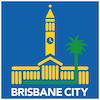![]()
Kerbside collections
Brisbane residents have punted more than 5000 tonnes of unwanted household items to the kerb since the Schrinner Council’s return of kerbside collection.
Lord Mayor Adrian Schrinner thanked the thousands of Brisbane residents who had participated in kerbside collection so far this financial year, saying the vast majority of items placed put out for collection had been appropriate.
“Kerbside collection is a great opportunity for households to discard items that are too big for their wheelie bins,” Cr Schrinner said.
“In some other local government areas this service is not available at all.
“So far, our kerbside collectors have picked up plenty of old fridges, mattresses, furniture, and electronic goods such as TVs and monitors which are all acceptable.
“However, if kerbside collection is coming to your suburb soon, it’s good to remember that some items, like building waste and car parts, won’t be taken, and that items should be placed out no earlier than the weekend before the designated collection week and no later than 6am on the day of collection.
“Items should also be placed off the road and out of the way of pedestrians and postal workers, so that they don’t become a safety hazard.”
The Schrinner Council returned kerbside collection to Brisbane’s suburbs a year earlier than planned after it was postponed to help deal with the severe financial impact on residents and businesses caused by the COVID-19 pandemic.
“Residents and business were pleading for support at the height of the COVID-19 pandemic as Brisbane was struck by severe lockdowns that forced businesses to close and cost people their jobs,” Cr Schrinner said.
“So we used the money saved by pausing kerbside collection to provide direct assistance to thousands of businesses, community organisations and residents through the most comprehensive relief package delivered by a local government in Australia.
“We gave out grants, froze rates and waived fees to help people through the pandemic and leave them in a better place to start mounting a recovery.
Because of years of responsible financial management, we were able to announce in last year’s budget that kerbside collection would be returning 12 months earlier than planned.
An estimated 13,000 tonnes of unwanted good are expected to be collected this financial year at a cost of more than $7.4 million.
Acceptable items for kerbside collection include:
- bath and laundry tubs
- bicycles and sporting equipment
- carpet and rugs
- electronic waste (e.g. televisions and computers)
- furniture and white goods (e.g. fridges and stoves)
- small household appliances (e.g. fans and toasters)
- wood products less than 1.5 metres
Council will not collect unacceptable items placed on the kerb. These include:
- bricks and concrete
- commercial builders waste
- car parts and tyres, including car batteries
- dirt and stones
- garden waste (e.g. trees, grass, potted plants)
- gas bottles
- general household waste (e.g. food scraps)
- glass and mirrors
- hazardous wastes (e.g. chemicals, oil, asbestos)
- household waste that normally goes into your waste or recycling bin
- liquids
For more information on kerbside large item collection visit brisbane.qld.gov.au or download the free Brisbane Bin and Recycling app.
Collection Dates for Central Ward are :
16 January 2023 for
- Brisbane City
- Fortitude Valley
- New Farm
- Newstead
- Spring Hill
- Teneriffe, and
6 February 2023 for Bowen Hills
Place acceptable materials for collection on the kerbside in front of your home on the weekend before the collection starts in your suburb. All items must be on the kerb by 6am at the start of the collection period.
Council will not collect unacceptable items placed on the kerb. Illegal dumping fines may apply if unacceptable material is not removed within seven days of the notified collection period.
Guidelines
When putting out items for collection remember:
- to keep the piles tidy on the kerb so the footpath or roadway is kept clear
- Council will not collect piles larger than two cubic metres (equal to a small box trailer load)
- doors must be removed from refrigerators and cupboards
- do not leave sharp or dangerous objects
- items must be able to be easily and safely lifted by two people
- items must be secured if severe weather is expected
Other resource recovery options
The kerbside collection service helps you to remove large household items from your home and recycles all metal items put on the kerb, such as fridges, washing machines, and window frames.
Council encourages you to look for other resource recovery options for your large household items, which will contribute to a cleaner, greener city by reducing landfill.
Donate useable items
To help reduce landfill, donate household items in usable condition to friends or family, a local charity or other reuse and recycling organisations. Below are some organisations to help you reuse and recycle large household items.
GIVIT
GIVIT is a national not-for-profit connecting those who have with those who need, in a private and safe way. The GIVIT online service lets you see a list of everyday items that are urgently needed by someone in the community and connects you to trusted charities so you can make a difference to somebody’s life. Useable household items can be donated. Visit the GIVIT website for more information.
NACRO
The National Association of Charitable Recycling Organisations Inc. (NACRO) is the peak organisation for Australia’s charities and charity op shops that recycle clothing, furniture, household and workplace goods to provide for the disadvantaged and fund vital community welfare programs. For more information and a list of organisations accepting donations, visit the NACRO website.
Council tip shops
Council’s tip shops in Acacia Ridge and Geebung sell quality second-hand items that are donated by residents through Council’s transfer stations and resource recovery centres. The tip shops are operated by Endeavour Foundation and all proceeds support people with disabilities. Donating to tip shops is free when using Council’s resource recovery centres.

